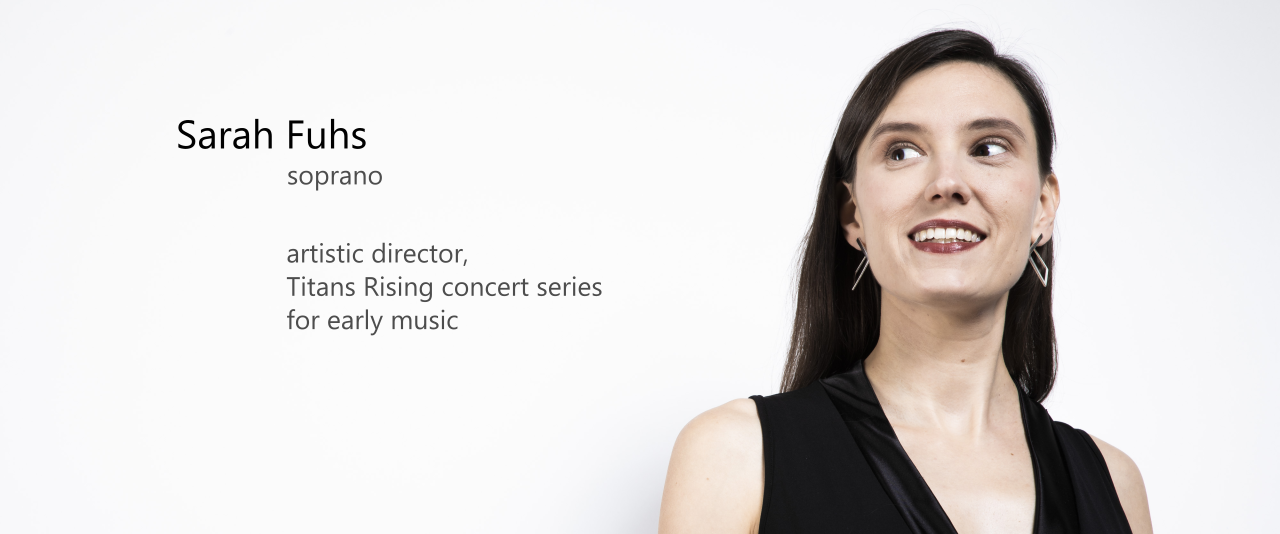What does it mean to sing (classical) music in 2020?
As a classically-trained musician, I grew up listening to Tchaikovsky, Handel and the piano music of Debussy, because their beauty drew me in as a teenager. Sure, my childhood was heavily influenced by the hallmark Disney movies and popular musicals of the time, and somehow I didn’t live “under a rock” COMPLETELY unaware of pop culture (although many of my high school and college friends would argue otherwise!)… but those kinds of influences were somehow subconsciously put in a separate drawer as “unserious music,” to be rather ignored by my developing professional self.
A couple of decades later I teach a lot of pop, jazz and musical songs to my own students, who are not necessarily on a track to become professional musicians themselves, but rather to explore their love of all kinds of music and their relationship to their voices as instruments. Even so, somewhere in the back of my mind I feel those old drawers still firmly in place – “Yes, this music is fun, but it’s just that,” or “It’s great music for a hobby.” The truth is, I enjoy going on these explorations across time and genres with my students – why don’t I allow myself the same freedom?
There is an unspoken rule that classical musicians should perform only that music which is “worthy” of the skills they spent years to train, and to do anything else would be to “sell out” to a larger audience for some cheap approval, as if “art music” and modern popular music cannot co-exist together. If we re-examine this mindset, we realize that Verdi and Rossini WERE the pop tunes of the day. Franz Liszt was the best show in town, on par with entertainers like Frank Sinatra or Lady Gaga. The more we think about these paradoxes, the more we realize that art was oftentimes serving as entertainment at the same time, and the line between the two was much more blurred than we think. Even today there are singer-songwriters making art in the 21st century* (Bob Dylan winning the nobel prize for literature can remove any doubt of that) and trying to compete with the entertainment machine of the pop industry – but that’s a topic for another time.
Now in 2020, it seems time for a revolution, or rather an evolution. Perhaps I have the Corona pandemic to thank for dashing all of our previous expectations and forcing us – in a good way – to re-think EVERYTHING that we thought was true and “normal” before. Whatever the reason, I also notice the crumbling compartmentalization of life into neatly orderd file folders and drawers. Warranted or not, I blame the industrial revolution for the last two hundred years of changing human mentality into embracing the idea of hyper-specializing in one or two very specific areas. Of course, specializations and the sharing of those discoveries has brought us very far in a very fast way, catapulting us into this new technological era which is advancing faster than our species can keep up with. But if the number of “mindfulness” podcasts and yoga apps is any indication, modern people long for wholeness and balance, as opposed to the idea of doing just one thing very well and all the time. We are hungry for lateral thinking across genres and interdisciplinary interactions and conversations to find meaning in this fast-paced world. I too experienced a kind of whiplash, as the madness of the speed kept us going at an impossible rate and then suddenly… disappeared. Not everyone experienced the calm and stillness after much of the world shut down, but those fortunate enough to stay home might have (assuming they weren’t home-schooling kids while continuing to work full time from home).
The result of this “spring cleaning:” it’s time to toss out the fabled drawers of “serious” and “unserious” music. In the end there is just music, and so much music can speak to us. Similarly, there is only today and what we are doing with today, whether re-inventing the past or imagining the future (or simply living in the now – thank you, Eckart Tolle). Florence at the beginning of the 17th century was an exciting time for music, and I love to get swept up in the innovations that were taking place in the Florentine camerata. Bob Dylan’s “Blowin’ in the wind” also speaks to me and captures the poignancy (and pointlessness?) of humans killing each other in wars throughout the ages. We live in 2020 – classical musicians can’t and shouldn’t pretend that we don’t have the collective experience of the last hundred years, especially if we hope that future generations will have any interest in exploring the music traditions of the last thousand years with us. (Granted, most classical musicians stop at about 300 years back, but I like REALLY old stuff.)
In short, about making music in 2020 post-Corona, I say this: let’s blur lines and forget labels. Let’s admit that many kinds of music from many different centuries can and do speak to us, that intrinsic value has nothing to do with WHEN a song or piece of music was written. Let’s embrace it all, following our curiosity wherever it may lead. Who else is curious?
*I’m always eager to get to know lesser known artists – please post listening recommendations in the comments!
